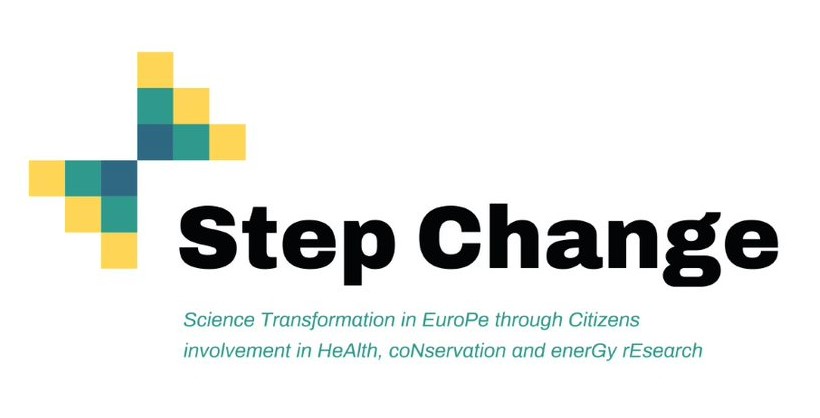Project Description
STEP CHANGE will implement five Citizen Science Initiatives (CSIs) in the fields of health, energy and environment. The CSIs will tackle the issues of wildlife conservation in Slovenia, non-alcoholic fatty liver disease in the UK, energy communities in Germany, infectious disease outbreak preparedness in Italy, and off-grid renewable energy in agriculture in Uganda.
The project, launched in March 2021, will draw on the expertise of 11 partners from 7 European countries and Uganda, to increase the mutual responsiveness of science and society while boosting the capacity of scientific investigation over phenomena that cannot be completely seized within conventional disciplinary boundaries.
STEP CHANGE builds on the assumption that citizen science can play an even broader societal and scientific role than is generally acknowledged. The overall objective of the project is to explore the potential of citizen science and to formulate recommendations and instruments for better cementing this approach within R&I institutions as well as changing researchers’ mindsets on its value.
To support the spread of citizen science, the project will design a Citizen Science Navigator, a web-based tool that will collect theoretical and practical insights about different citizen science applications. The aim of the project is to ensure that research institutes make the most of what citizen science has to offer, whilst also identifying, analysing, and limiting the associated risks.
To maximise its impact, STEP CHANGE will make use of a multifaceted methodology not only fostering alignment with local contexts, but also nurturing mutual learning, encouraging self-reflection, and performing participatory evaluation exercises.
Impact Assesment Tools
Current Project Impact
The following scores were calculated using a statistically-driven machine-learning approach, a type of AI that learns to perform a task by analysing patterns in data. This is an experimental approach to citizen-science impact assessment, and the exact reasoning behind the scores is not explainable. The scores represent a best guess of the impact the project is having in each domain. Scores are recalculated and updated when “View impact report” is clicked.
Domain Progress
Proportion of questions answered in each domain.
-
This is the beginning of a journey (some would say a "trajectory" ) along more than 200 questions. Don't worry; you don't have to answer them all at once. Do something, and come back some other day. You will find a lot of help along the way, and if you're generally happy to start, just click on "Ok, I got it!" below. If you're unsure how to answer a question, again, don't worry, answer it in the way that makes most sense to your project and you can always come back and change it later. If you still have doubts about life, the universe and everything, now or later, head to where to find help for advice and all the clarity you might look for.
